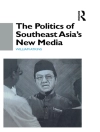This book is the first major study of England’s biggest and best-known witch trial which took place in 1612, when ten witches were arraigned and hung in the village of Pendle in Lancashire. The book has equal appeal across the disciplines of both History and English Literature/Renaissance Studies, with essays by the leading experts in both fields. Includes helpful summaries to explain the key points of each essay. Brings the subject up-to-date with a study of modern Wicca and paganism, including present-day Lancashire witches. Quite simply, this is the most comprehensive study of any English witch trial.
Cuprins
Preface – Robert Poole
Acknowledgements
1. Introduction: the Lancashire witches in historical context – James Sharpe
I. THE TRIALS OF 1612
2. Potts, plots and politics: James I’s Daemonologie and The Wonderfull Discoverie of Witches – Stephen Pumfrey
3. Thomas Potts’s ‘dusty memory’: reconstructing justice in The Wonderfull Discoverie of Witches – Marion Gibson
4. ‘Those to whom evil is done’: family dynamics in the Pendle witch trials – Jonathan Lumby
II. CONTEXTS: SOCIETY, ECONOMY, RELIGION AND MAGIC
5. Witchcraft, economy and society in the forest of Pendle – John Swain
6. The Reformation in the parish of Whalley – Michael Mullett
7. Beyond Pendle: the ‘lost’ Lancashire witches – Kirsteen Macpherson Bardell
III. REWRITING THE LANCASHIRE WITCHES
8. The pilot’s thumb: Macbeth and the Jesuits – Richard Wilson
9. The Late Lancashire Witches: sexual and spiritual politics in the events of 1633-4 – Alison Findlay
10. The ‘Lancashire novelist’ and the Lancashire witches – Jeffrey Richards
11. Wicca, paganism, and history: contemporary witchcraft and the Lancashire witches – Joanne Pearson
Bibliography
Despre autor
Robert Poole is Reader in History at St. Martin’s College, Lancaster












